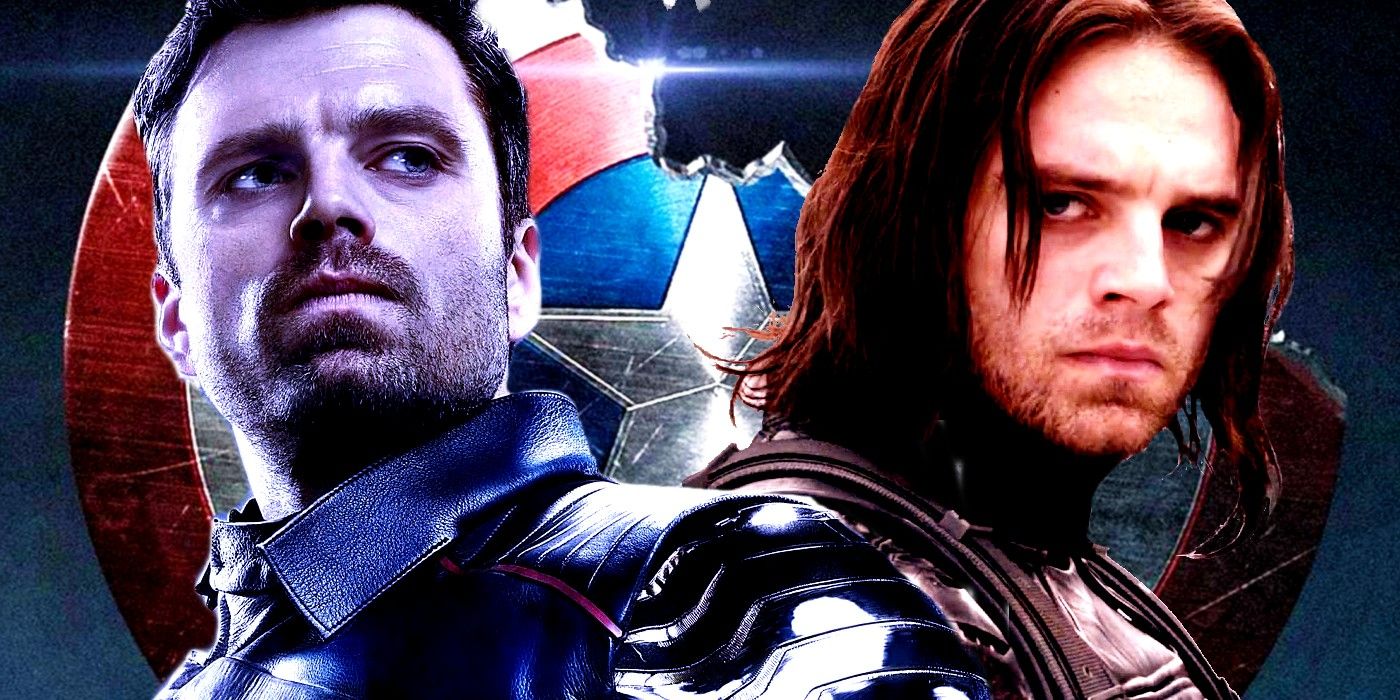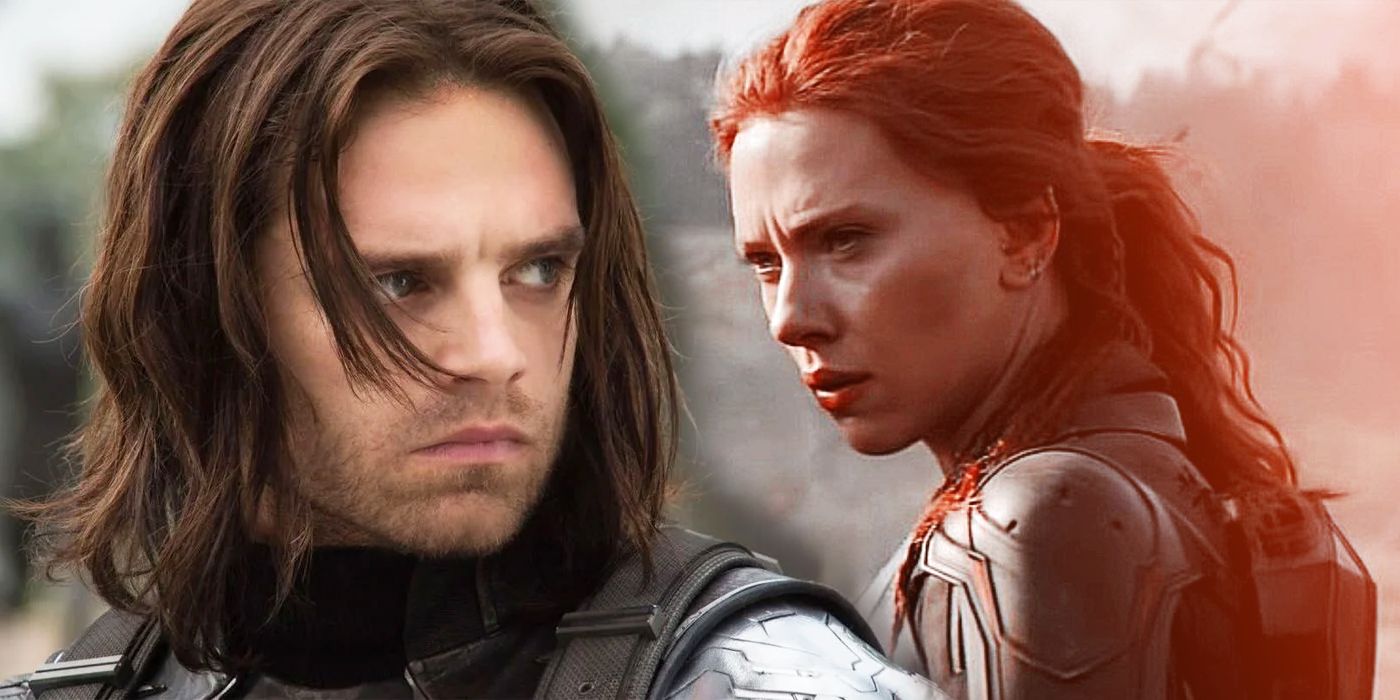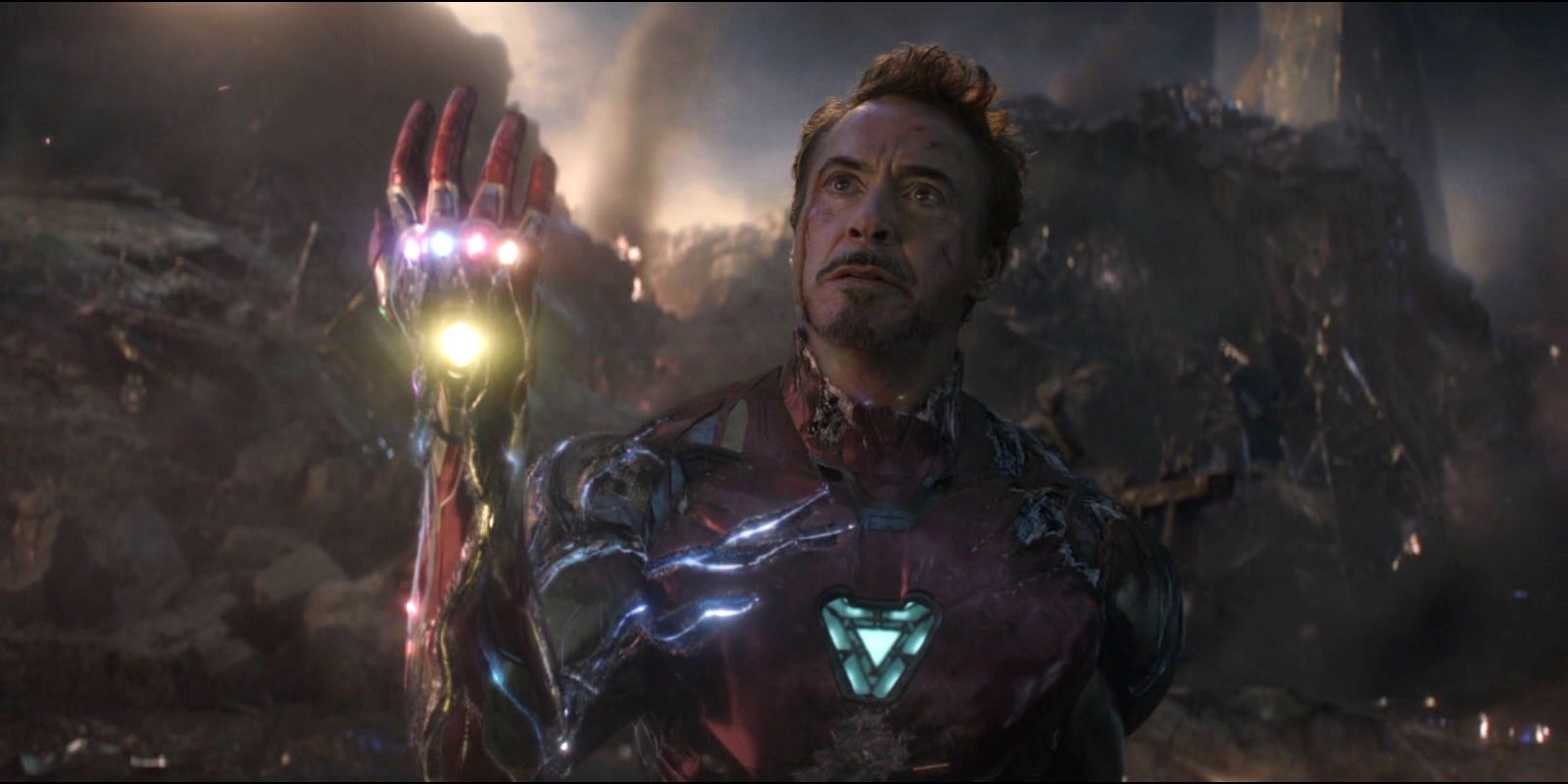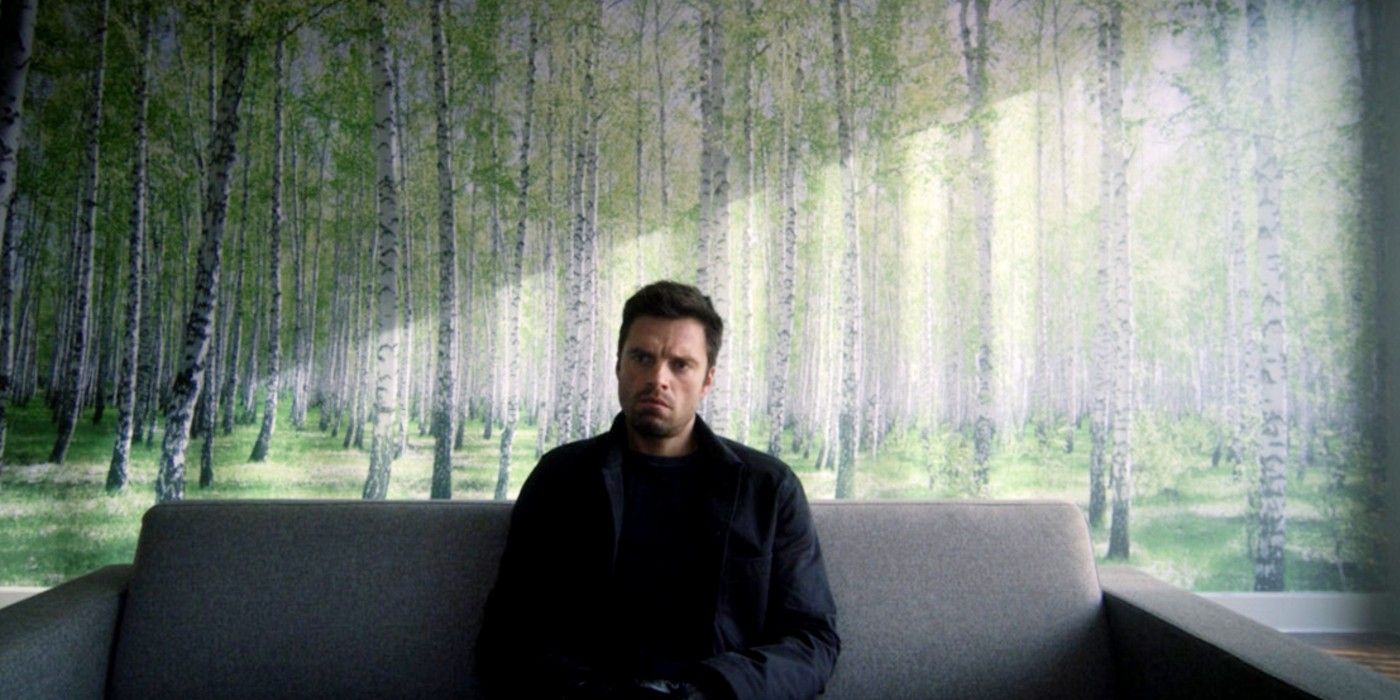Falcon & The Winter Soldier Teases Why Bucky Has To Die

Bucky's MCU ending probably isn't going to be a happy one, and The Falcon & The Winter Soldier is already setting up a heartbreaking finale for the former HYDRA operative. Even after he was reprogrammed in Wakanda and nicknamed the White Wolf, what appeared to be a happy ending for Steve Rogers' best friend has already been almost completely walked back and the signs are there that he won't continue in the MCU beyond his titular Disney+ show. Death is in his past, and death is his future.
Bucky's story in the MCU has been a fraught one. He's arguably suffered the most of all of the Avengers-aligned characters, alongside Wanda Maximoff, with the added trauma of his HYDRA conditioning as the Winter Soldier adding an unprecedented element to his origin story. Considering he walked into war full of cocksure bravado and became a key part of the MCU's Howlin' Commandos, the fact that everything he knew other than war was stripped away from him was a particularly chilling revelation. And though Wakanda offered a momentary peace for him, as Bucky confirmed in the first episode of The Falcon & The Winter Soldier, it proved all too temporary as Infinity War drew him back in, killed him off, and then spat him back into the Endgame war when he returned.
It is in Bucky's sad reflection of what Wakanda meant to him as well as the PTSD-inspired nightmares of what he did as the Winter Soldier that foreshadow exactly why his story cannot end any way but badly. Because those nightmares draw Bucky tightly together with another former MCU character who suffered the closest history to his at the hands of those running the Red Room. In other words, because both Bucky and Black Widow had red in their ledgers, they were both destined to wipe it out through heroic sacrifice, paying the ultimate price. And that's not the only reason.

The Winter Soldier and Black Widow are united in several ways in the MCU and both seem destined to end their stories in the same way. Even the fact that both continued to be referred to in canon by the names bestowed upon them by their former villainous masters confirms the haunting truth that they cannot escape their past. Even realigning with the Avengers and putting their lives on the line is not enough, and while forgiveness is not an issue for either, it's what their deeds cost themselves that is the key issue here. Natasha was haunted by the "red in her ledger" and giving up her life so that Clint Barton could live his with his family was her ultimate repayment of that perceived debt. The lack of a fitting memorial was an issue, but the manner of her death was never a problem in Infinity War, because it fit her arc, and that was without seeing very much at all of what her life before the Avengers was like.
The gaps of Widow's backstory are being partly filled in already by Bucky's nightmares, which offer a reflection of how both of them must have felt about the crimes they perpetrated while under someone else's influence. Despite his reprogramming by Wakanda's advanced medical technology, Bucky is still left with his ghosts, rather cruelly and the introduction of Ken Takemoto's Yori in The Falcon & The Winter Soldier is a stark reminder of just how close Bucky's trauma is. No matter how much therapy he has, or how pardoned he is, he knows that the moment he reveals that he killed Yori's son is the moment he confirms he's a monster in the old man's eyes. Bucky is tormented by perception, cursed by knowledge of his own deeds and unable to separate the reality of his condition from the cost of those crimes. Only blood spilled in repayment seems to fit.

It isn't just Black Widow's arc that offers precedent for those looking for justification of this theory, because the MCU has something of a pre-occupation with the idea that superheroes will inevitably die. The reason for that is that the creators at the heart of the franchise believe that MCU heroes should die because it is the hero's fate. Endgame co-director Joe Russo offered the comment on the We Love You 3000 Tour when asked about why Tony Stark had to die:
"I think like, in a way, Tony Stark was always fated to die. And… here’s the thing about our culture that’s interesting. A lot of people get upset about that, when I say something like that. But when you’re a hero, your job is to die. That is your job as a hero, is to sacrifice yourself for the greater good. And that’s what we’re trying to teach people in the movie is that you’re either in it for yourself, or you’re in it for the community. And Tony was in it for the community."
The Russos may not be in charge of what happens in every subsequent MCU property, but they played a huge part in Bucky's story in the MCU after Captain America: The First Avenger and it is the logic of heroic deaths that is hardest to shake here. Tony Stark died because he was fated to, not only from the first time Captain America challenged him on whether he'd ever be the one to lie down on the wire, but from even earlier. WandaVision filled in some more of that rejected history, showing more of the cost of Stark Industries' weapons production past, and reaffirming that Tony too had red in his ledger. When Thanos said Tony was cursed with knowledge, he wasn't just talking about Tony's fear of the end of the universe, he was talking about Tony's fear that he would be the destroyer. That he already had been. And Iron Man knew that well before he met the Mad Titan, because of his past: it's why he tried on more than one occasion to sacrifice himself.

The key point is that Bucky is not only destined to die because of his parallel with Black Widow, but more with the overall MCU trope of killing heroes for dramatic impact, particularly when they have a narrative reason to sacrifice themselves. The first episode of The Falcon & The Winter Soldier has already established that the idea of what makes a good man will be a major part of the rest of the show. It is the true legacy that Sam Wilson was left, putting even the shield aside, and the "title" that he seems not to believe himself worthy of and the unspoken revelation of why Steve chose Sam and not Bucky is that he couldn't qualify. Even Steve Rogers, the man who had put his freedom on the line and clashed with his own duty to his country in order to prove to the world that Bucky was redeemable, did not believe him redeemed enough to bestow him with the Captain America title.
Bucky has a lot to prove to the world, despite his pardon. He still has to attend therapy to ensure that he is no longer the monster behind the Winter Soldier's mask, he still has to wrestle with the idea of explaining himself to his victims' families, and he still has to accept that Steve didn't choose him. Even on a subconscious level, that must play on Bucky's mind and despite his desire to escape his life of war, it's already established that new villains the Flag-Smashers and Zemo's return will draw him back in. And it is arguably the latter's presence that is the most important additional element, because of his fundamental belief that superheroes escape accountability for their crimes. Ending Bucky's story with a sacrifice that changes Zemo's opinion of heroes and potentially fights back against his ideology would offer an even more important justification for it.
On top of that, it is prudent to acknowledge that Bucky has no future in the MCU beyond the show. He is, tragically, a man out of time who doesn't belong back in his own past like Captain America and whose path back to the past has been barred by Steve taking the opportunity without him anyway. His statement about wanting peace means that to do anything but permanently retire him would be cruel and leaving him with his ghosts, even if he admits to his crimes to the families of everyone he killed would be even crueler. In a twisted way, Bucky's dark MCU past means he deserves to die, because living is hell and the debt he feels he owes to the world makes the likelihood of him dying to some heroic end in The Falcon & The Winter Soldier is not just fitting, it's actually almost comforting.
from ScreenRant - Feed
